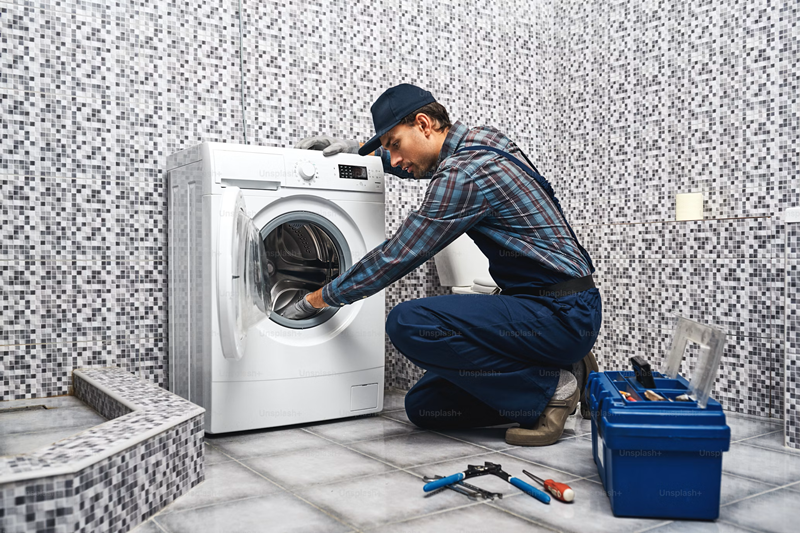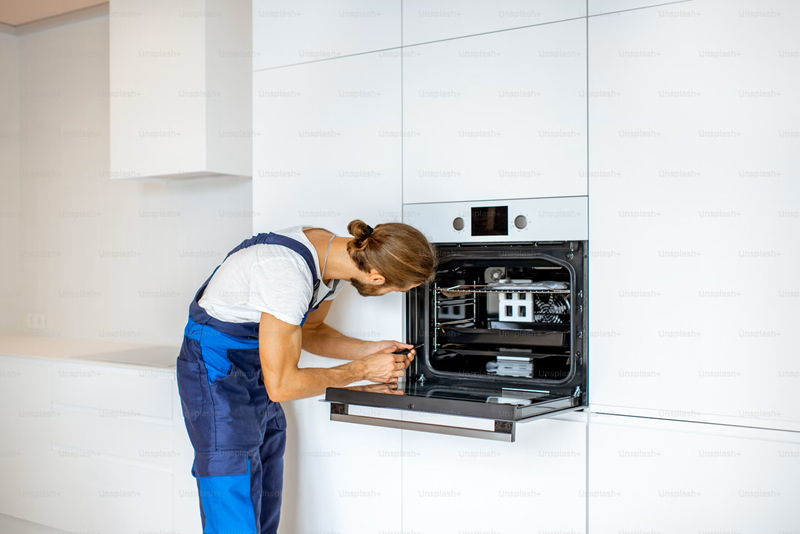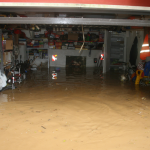Spring Appliance Repair: Why Now’s the Time to Fix What’s Broken

You’ve been putting it off all winter. That dryer that takes three cycles to actually dry anything. The dishwasher making weird grinding noises. The fridge that’s louder than your teenage son’s music.
Spring’s here, the weather’s warming up, and honestly? This is the perfect time to deal with all those appliance issues you’ve been ignoring. Not because spring cleaning is some magical concept, but because waiting until summer or winter to fix things is going to cost you more money and cause way more stress.
Why Spring Timing Actually Matters
Think about what happens when peak season hits. Summer arrives and everyone’s aircon dies at once. Winter rolls in and every heater packs it in on the same freezing night. Repair companies get slammed, and you’re waiting weeks for someone to show up.
Spring’s different. Technicians have availability, you can book appointments that suit your schedule, and your appliances aren’t under peak stress right now. It’s the calm before the storm, which makes diagnosing and fixing problems much easier.
There’s another benefit too. You avoid the panic tax. When your dryer dies mid-winter with a mountain of washing, you’ll pay whatever it takes. Deal with it now on a sunny spring day? You can shop around and make smart decisions.

Which Appliances Need Attention First
Not everything needs immediate attention. Focus on what’s going to cause the most grief if it fails during peak season.
Cooling Systems Come First
If your aircon struggled last summer, didn’t cool evenly, or made strange noises, sort it out now. The first 35-degree day is not when you want to discover your system’s rooted. Getting aircon repair done before the heat hits means better availability and thorough diagnostics without the rush.
Dryers Need Early Attention
A dryer taking longer to dry loads isn’t just annoying. It’s a warning sign. A machine working inefficiently now will completely die when you need it most during winter. If your dryer’s been temperamental, spring’s the time to get it assessed by professionals who handle dryer repairs in Melbourne.
Don’t Forget Year-Round Appliances
Your washing machine, fridge, and dishwasher run constantly. Any leaking, unusual sounds, or performance issues? Deal with them now while you’ve got flexibility. Waiting until you’ve got muddy footy gear piling up or you’re hosting dinner guests is just asking for stress.
Warning Signs You’ve Been Ignoring
Let’s be honest about what’s actually happening. You know something’s wrong. You’ve just been hoping it’ll sort itself out.
Strange Noises Getting Louder
Grinding or squealing sounds mean something’s wrong with pumps, motors, or moving parts. These don’t improve with time. They get progressively worse until something fails completely.
Banging or rattling suggests something’s loose or worn. Your washing machine vibrating across the floor isn’t normal. Your dishwasher sounding like it’s digesting rocks isn’t fine. These are problems that need fixing.
Constant running from your fridge means it’s working too hard. Your compressor’s probably struggling, and replacing one is expensive. Replacing a whole fridge because the compressor died and damaged other parts? Even more expensive.
Performance Problems You’ve Accepted
Your dryer shouldn’t take multiple cycles. It’s costing you money every time you use it, and something’s blocked or broken. Could be the lint system, vent, heating element, or moisture sensor.
Your washing machine shouldn’t leave clothes dirty or soaking wet. If the spin cycle’s not working properly or water’s not draining, you’ve got a mechanical problem that’s only getting worse.
Your dishwasher shouldn’t leave dishes dirty or full of water at the end of the cycle. These aren’t just annoying quirks. They’re signs of real problems.
The Leaks You Keep Mopping
Water around your washing machine isn’t something to ignore. It’s coming from somewhere, and that somewhere will eventually turn into a proper flood. Hoses, seals, pumps, or the drum could be failing. Find out now while it’s manageable.
What Actually Happens During Repairs
If you’ve never called for appliance repair, the process is straightforward. You book an appointment that suits your schedule. Because it’s spring and not peak season, you’ll usually get someone within days.
The technician shows up, examines the appliance, and runs diagnostics. They’ll explain what’s wrong in normal language, not technical jargon. They’ll tell you the cost before starting any work.
Sometimes they fix it immediately if they’ve got parts. Other times they order parts and return. Either way, you’ll know exactly what’s happening. Most repairs take an hour or two unless there are complications.
You get a warranty on the work. Proper companies stand behind their repairs. If the problem returns during the warranty period, they fix it without charging again.
DIY Repairs vs Professional Help
YouTube makes everything look easy. Reality’s different. You’re on the laundry floor, water’s everywhere, you’ve got the wrong tools, and nothing’s going back together properly.
What You Can Handle Yourself
Some maintenance is absolutely DIY territory:
- Cleaning lint filters after every dryer load
- Checking hoses for kinks or damage
- Running cleaning cycles on washers and dishwashers
- Replacing simple water filters
- Clearing obvious blockages from drains
These basic tasks keep appliances running well and don’t need special tools or expertise.
When to Call Professionals
Leave these to people who do this for a living:
- Anything involving electrical components
- Gas connections or repairs
- Refrigerant handling in cooling systems
- Internal mechanical parts and motors
- Circuit boards and computer systems
Modern appliances are complicated. They’ve got sensors, circuit boards, and computerized systems. A dodgy DIY repair can cause worse problems than the original issue. Professional technicians have genuine parts, proper tools, and have seen your exact problem hundreds of times before.

Understanding Repair Costs
Everyone wants to know what things cost, and fair enough. Appliance repair isn’t free, but it’s usually cheaper than replacement.
What You’ll Actually Pay
Call-out fees cover the technician’s visit and diagnosis. That’s usually $80 to $150 depending on your area. Some companies waive it if you proceed with repairs.
Actual repair costs depend on what’s wrong:
- Simple fixes like door seals or blocked pumps: $150 to $300
- Complex repairs involving motors or compressors: $300 to $600 or more
Compare that to replacement costs. A decent washing machine costs $800 to $1200. Dryers are similar. Dishwashers start around $600. Fridges? At least $1000 for anything decent.
Repair or Replace?
Here’s a simple rule. If your appliance is relatively new and repair costs less than half of replacement, fix it. If it’s ancient, constantly breaking, and repair costs nearly match a new one, consider replacing.
Get quotes and ask the technician’s honest opinion. Good technicians will tell you if your appliance isn’t worth fixing rather than charge for a repair that won’t last.
Spring Maintenance That Prevents Future Problems
Spring work isn’t just about fixing what’s broken. It’s about preventing problems before they start.
Cooling System Service
Get your aircon serviced before summer. Filters cleaned, refrigerant checked, components tested. Well-maintained systems run efficiently, cost less to operate, and don’t fail on the hottest day when everyone else does too.
Dryer Vent Cleaning
Your dryer vents need proper cleaning, not just the lint filter. Built-up lint is a genuine fire hazard. This is maintenance people skip until there’s a problem, but it’s crucial for safety and efficiency.
Fridge and Seal Checks
Check your fridge door seals. If they’re not sealing properly, cold air escapes constantly and your fridge works harder than necessary. Simple seal replacement can reduce your power bill significantly.
Appliance Maintenance Cycles
Run maintenance cycles on your washer and dishwasher. These aren’t optional. They clean out built-up detergent, grime, and scale that affect performance. Think of them as essential, not suggestions.
Finding Reliable Repair Companies
Not all repair companies are equal. You want someone licensed, insured, and with a solid track record.
Check Reviews Properly
Don’t just look at star ratings. Read what people actually say. Look for patterns. Multiple mentions of knowledgeable, helpful technicians? That’s useful. Multiple mentions of unnecessary parts or pushy sales? Red flag.
Ask About Warranties
Reputable companies warranty their work and parts. If someone won’t stand behind repairs, don’t use them. Simple as that.
Get Clear Pricing
Know the call-out fee before they arrive. Get a detailed quote before work starts. No surprises, no hidden costs, no extra charges appearing afterwards.
Ask Questions
What’s wrong? What needs fixing? How long will it last? Why did it fail? Good technicians don’t mind explaining. They want you to understand what you’re paying for. If someone talks down to you or gets irritated by questions, find someone else.
Stop Waiting for Problems to Get Worse
That appliance problem isn’t fixing itself. It’s not suddenly going to start working properly again. It’s getting progressively worse until it fails completely at the most inconvenient moment.
Spring gives you the perfect window. Weather’s nice, technicians are available, and you’ve got time to sort things properly without panic. You can make smart choices, get thorough repairs, and prepare for the seasons ahead.
Stop living with appliances that don’t work right. Stop wasting money on inefficient machines. Stop stressing about when they’ll finally die.
Make the call. Book the appointment. Get it sorted. When summer hits and everything’s running smoothly instead of breaking down, you’ll be glad you did.






























